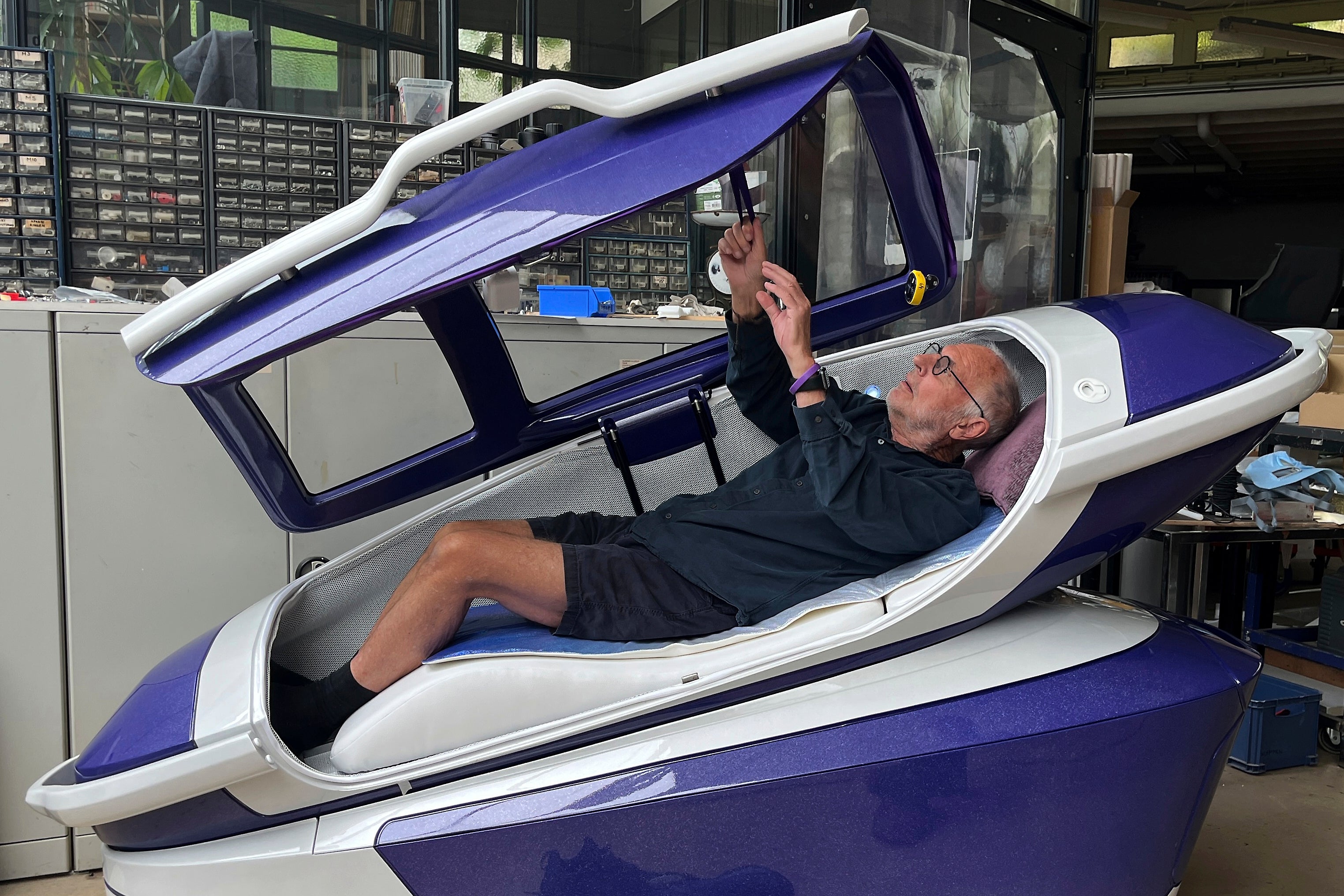We deserve to have a say in how we die
Letters to the editor: our readers share their views. Please send your letters to letters@independent.co.uk

Your report into the woman who ended her life in a Sarco suicide pod (“Woman ‘almost immediately’ ended her life in controversial suicide pod, creator says”, Wednesday 25 September) said the patient “died under a canopy of trees in Switzerland”. To me, that sounds preferable to dying in great pain in a hospital bed.
Not all pain can be controlled. Most of us don’t want our loved ones to see us suffering greatly, and we want to leave them with happier memories of us. Just as pregnant women have the choice of a natural birth or a high-tech delivery, most people want terminally ill people to be able to choose the manner of their death.
A Wills
Ruislip
Gender bias?
I have just read of the government’s proposal to significantly reduce the number of women in prison (“Justice secretary Shabana Mahmood unveils plan to shut women’s prisons amid overcrowding crisis”, Tuesday 24 September).
Their reasoning includes the lack of rehabilitation support, the break-up of families, and the fact that a large number of women are in prison for non-violent offences.
I agree with this analysis and policy objective – but I do wonder why it is applied only to the female prison population? Exactly the same arguments could be made about the much larger number of men who are jailed.
Should it not be a government objective to reduce the total prison population so as to improve the rehabilitation of offenders, reduce costs and ultimately increase public safety? How can they do that focusing on just one demographic?
Alan Brown
Wirral
Harrods must be brought to book
Reading the horrific stories of the women sexually abused by Mohamed al-Fayed leaves me aghast and angry – and a little bemused (“We knew al-Fayed was an abuser – he was let off the hook”, Sunday 22 September).
With so many people working for the Harrods organisation, it seems inconceivable that over the decades his executives, senior managers, directors or other shop-floor staff didn’t know what he was doing.
And yet none did anything to stop the abuse, to help the women affected or to call out his despicable, depraved and deplorable behaviour.
The young women working at Harrods would have thought they had a career that was the envy of many. But it turned out to be a horror story that would last a lifetime.
Undoubtedly, Fayed’s status as a billionaire, and one who rubbed shoulders with the great and the good, will have helped him evade justice. Now he is dead, his many victims are free to come forward. These women have braved the media attention, legal trauma and their own devils to tell the truth about Fayed’s abuse.
The Harrods organisation must be scrutinised for the part it played in allowing the abuse to continue for decades. It is only right that those who aided Fayed now be brought to book.
Keith Poole
Basingstoke
We give our winter fuel payment away
My wife and I are both retired teachers in our late seventies. We both receive reduced teacher pension, as we took early retirement, plus state pension. We have no mortgage to pay. We take holidays and enjoy meals out.
We can see no reason as to why the state should pay us a winter fuel supplement when there are other more needy areas in our country (“Starmer is right to grasp the nettle of benefits reform – even if it stings him”, Wednesday 25 September).
Each year, we pass the allowance onto the homeless.
Keith Norton
Norwich
Mariella strained on the train
Your news story about Mariella Frostrup having no seat on a train was frustratingly incomplete (“Broadcaster forced to sit on train floor despite buying first-class ticket”, Wednesday 25 September)
We were invited to think it awful that someone with a first-class ticket had to travel in the vestibule – but we were not told why, which could completely change the story.
Was someone else in her seat? If so, why would they not move? Did she appeal to train staff for help, and how did they respond?
Were reservations on the train suspended? If so, why? Was the train faulty? Was the train over-full with passengers from a cancelled service?
Was she on the same train as her reserved seat – or was she on another train? Was her train cancelled, or did she arrive too late to catch it? Or did she choose to take an earlier train instead of the one she was booked on?
Depending on these facts, the story could be anything from a train company failing to provide a proper service to one doing its best under difficult conditions.
Her quoted social media post was interesting. It suggested, after her train experience, she would be getting “back in her car” – but the accompanying photo showed her with an open laptop, suggesting that even sitting in the vestibule, she spent her train journey working. She couldn’t do that while driving.
John Harrison
Wokingham






Join our commenting forum
Join thought-provoking conversations, follow other Independent readers and see their replies
Comments